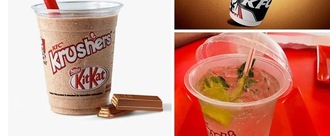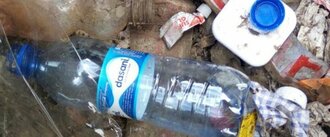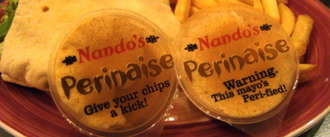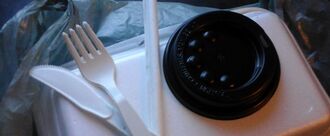
#BreakFreeFromPlastic

21,799
of 25,000
signatures
signatures
across
18 local campaigns
Find a campaign
Campaigns (18)
-
DRC: NON À LA COMMERCIALISATION DE L'EAU EN SACHETS ET NON AUX EMBALLAGES EN PLASTICS.Nous pensons que la gestion de déchets afférents à ces plastics et sachets reste à désirer en ce sens que : - Pas de structure de ramassage et de destruction, - Ces sachets et plastics détériorent la qualité de notre sol en réduisant sa productivité, - Ces sachets et plastics ternissent l'image du pays et polluent notre environnement . - Nos eaux et nos sources souffrent de la pollution de ces sachets et plastics, - Ces sachets et plastics sont des lieux de prédilection pour les moustiques et autres insectes ...298 of 300 SignaturesCreated by Adonis NDAMRICH
-
NIGERIA: STOP SINGLE -USE-PLASTIC SACHET WATER PRODUCERSWhen you walk along the streets of major cities in Nigeria,you will understand why these "pure water" manufacturers must stop single-use-plastic sachets. The disgusting state of our streets and neighborhoods is a good example to ban these "pure water" sachets. Tonnes of sachet plastics end up in our streets, waterways, parks all over the country which lead to extremely unhealthy and unhygienic environment for conducive healthy living. This has turned most neighborhoods in our major cities like refuge dumps. Furthermore these plastic sachets end up as litter and pollution all over the country which eventually finds its way in the ocean, this too is dangerous for Marine creatures.283 of 300 SignaturesCreated by John Abumchukwu

-
JohannesburgJOHANNESBURG, SA: FISHAWAYS BREAK AWAY FROM PLASTICWe try to recycle and reuse the unnecessary amount of plastic packaging that comes standard with our food but the truth is that Single-use plastics are filling up our oceans and killing marine life around the globe. Plastic is the most common element that is found in the ocean. It is harmful for the environment as it does not get break down easily and is often considered as food by marine animals. One hundred thousand sea mammals are killed in the ocean by pollution each year. There is an island of garbage twice the size of Texas inside the Pacific Ocean: the North Pacific Gyre off the coast of California is the largest oceanic garbage site in the entire world. There, the number of floating plastic pieces outnumbers total marine life six to one in the immediate vicinity. Plastic debris can absorb toxic chemicals from ocean pollution, therefore poisoning whatever eats it. In fact, plastic pollution is one of the most serious threats to the ocean. Plastic does not degrade; instead, it breaks down into progressively smaller pieces, but never disappears. They then attract more debris. It poses a significant health threat to the various sea creatures, and to the entire marine ecosystem. Overall, plastic is the number one source of pollution in the ocean. Plastic is not only harmful to the marine life but it has been found in our drinking water as well as salt. Plastic is making its way into the food we eat and when plastic is heated it releases120 different cancer causing chemicals. We have been blessed with this beautiful earth and it is the responsibility of each and every one of us to do our part in preserving and protecting our earth and each other.767 of 800 SignaturesCreated by Miriam Patel

-
NairobiNAIROBI, KE: JAVA HOUSE STOP USING SINGLE-USE PLASTICOn the surface, Java House seems very progressive in their efforts to be environmentally friendly, however, we have noted a few more items that you need to let go of to make a genuine impact. For far too long, big corporations have forced plastic packaging into our lives when we buy their products. We have been told that recycling and better waste management are the answers. But, we know that over 90% of plastic has not been recycled. It’s time for corporations to move away from single-use plastic. WE ASK YOU TO CUT YOUR USAGE TO STOP THE DEMAND FOR THESE ITEMS! The more that businesses move toward biodegradable or reusable alternatives, the cheaper they will become, and the less plastic makes its way into the environment.459 of 500 SignaturesCreated by Janet Chemitei
-
JohannesburgJOHANNESBURG, SA: KFC STOP USING SINGLE-USE PLASTICWith a total of 840 stores nationwide...its time you Keep Fingers Clean. A look around the polluted environment surrounding any KFC branch is all that is needed to understand why it is important for your business to become single-use plastic free. For far too long, big corporations have forced plastic packaging into our lives when we buy their products. We have been told that recycling and better waste management are the answers. But, we know that over 90% of plastic has not been recycled. It’s time for corporations to move away from single-use plastic. The disgusting state of our streets and neighbourhoods is one blaring example of why. Tonnes of plastic end up in trash bins and parks all over the city which lead to extremely unhealthy and unhygienic environment for conducive healthy living. The plastic cups, straws and plastic sachets are non recycable and end up as litter and pollution all over the country which eventually finds its way in the ocean.1,128 of 2,000 SignaturesCreated by Hasina Kooreyshi
-
CAPE TOWN, SA: WOOLWORTHS SA STOP USING SINGLE-USE PLASTICFor far too long, big corporations have forced plastic packaging into our lives when we buy their products. We have been told that recycling and better waste management are the answers. But, we know that over 90% of plastic has not been recycled. It’s time for corporations to move away from single-use plastic. WE ASK YOU TO CUT YOUR USAGE TO STOP THE DEMAND FOR THESE ITEMS! The more that businesses move toward biodegradable or reusable alternatives, the cheaper they will become, and the less plastic makes its way into the environment.582 of 600 SignaturesCreated by Janine Tilley
-
NairobiNAIROBI, KE: DASANI STOP USING SINGLE-USE PLASTICAs one of the leading bottled water company in Kenya, we would like Dasani to diverse from using plastic bottles as they are a menace not only to our environment but to also to every citizen who has to suffer from the effects of plastic pollution. Don't be among the companies that contribute to the blockage of our drainage system especially during the rainy season causing floods in the city. We have been told that recycling and better waste management are the answers.But, we know that over 90% of plastic has not been recycled. WE ASK YOU TO CUT YOUR USAGE TO STOP THE DEMAND FOR THESE ITEMS! The more that businesses move toward biodegradable or reusable alternatives, the cheaper they will become, and the less plastic makes its way into the environment.4,225 of 5,000 SignaturesCreated by Erastus Wayne

-
DurbanDURBAN, SA: NANDOS STOP USING SINGLE-USE PLASTICFor far too long, big corporations have forced plastic packaging into our lives when we buy their products. We have been told that recycling and better waste management are the answers. But, we know that over 90% of plastic has not been recycled. It’s time for corporations to move away from single-use plastic. WE ASK YOU TO CUT YOUR USAGE TO STOP THE DEMAND FOR THESE ITEMS! The more that businesses move toward biodegradable or reusable alternatives, the cheaper they will become, and the less plastic makes its way into the environment.258 of 300 SignaturesCreated by Caz Karssing
-
Pringle BayPRINGLE BAY, SA: PRNGLE BAY BUSINESSES STOP USING SINGLE-USE PLASTICFor far too long, big corporations have forced plastic packaging into our lives when we buy their products. We have been told that recycling and better waste management are the answers. But, we know that over 90% of plastic has not been recycled. It’s time for corporations to move away from single-use plastic. WE ASK YOU TO CUT YOUR USAGE TO STOP THE DEMAND FOR THESE ITEMS! The more that businesses move toward biodegradable or reusable alternatives, the cheaper they will become, and the less plastic makes its way into the environment.272 of 300 SignaturesCreated by Julia Smith
-
DURBAN, SA: THE DAILY STOP USING SINGLE-USE PLASTICWhile we commend The Daily Coffee Café in Hillcrest for not providing a few single-use plastic items, we do note that plastic straws are given with your smoothies, that although are served in paper cups, already have a polystyrene sip lid on them, and that meals purchased that don't need cutlery are being supplied this regardless too. We feel these practises are unnecessary, and ask that The Daily commits to extending your healthy, real and wholesome principals to the planet too, by stopping these practises and extending this to all the single-use plastic used in Café in addition. For far too long, big corporations have forced plastic packaging into our lives when we buy their products. We have been told that recycling and better waste management are the answers. But, we know that over 90% of plastic has not been recycled. It’s time for corporations to move away from single-use plastic. The disgusting state of our coastline is one blaring example of why. Months have passed since the nurdle spill at Durban harbour, yet bits of plastic still end up on our beaches – we’re talking about a 3,000 km radius! These plastic pellets, used to create other plastic items, would not have been at our harbour in the first place had there not been a demand for plastic. WE ASK YOU TO CUT YOUR USAGE TO STOP THE DEMAND FOR THESE ITEMS! The more that businesses move toward biodegradable or reusable alternatives, the cheaper they will become, and the less plastic makes its way into the environment.431 of 500 SignaturesCreated by Melanie Sember


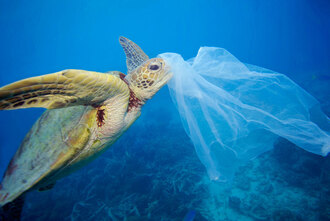
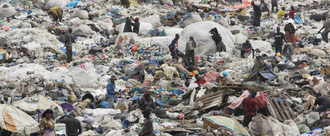
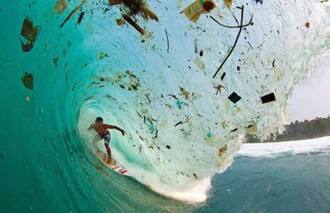.jpg)

